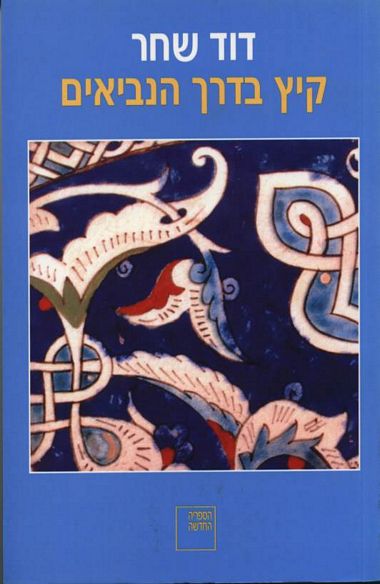
Summer in the Street of the Prophets [The Palace of Shattered Vessels, vol. 1]
The Palace of Shattered Vessels is a monumental life work, which David Shahar spent thirty years writing. Shahar confronts the meaning of time, with his childhood memories of Jerusalem during the British mandate in the 1930s providing his point of departure. Life in all its abundance, memory, and the quest for truth are the themes in this haunting and mystical novel. The young narrator is fascinated by the figure of Gabriel Luria, a descendant of a 16th century mystic and thus a symbol of all that Israel has been and will become.
The “shattered vessels” of the narrator’s house have concrete meaning for him when he draws water from the well and senses that the water and the spilling of the water symbolize the the flux and flow of history. The reader is introduced through the narrator’s eyes to the intimate life of the Luria family and to the people in this community who touch upon this life – the pharmacist, the librarian, the shopkeeper, the teacher. Shahar portrays Jerusalem and its inhabitants in a way that reveals both their sacred and their profane purposes, both the social and the religious crosscurrents of this ancient city.


- Languages
-
English, Estonian, French, German, Russian
-
English
London, Weidenfeld & Nicholson, 1973;
Boston, Houghton Mifflin, 1975 -
French
Paris, Gallimard, 1978; 1983 -
German
Koenigstein, Athenaeum, 1984 -
Russian
Jerusalem, Aliya, 1990;
Jerusalem/Moscow, Gesharim/Mosti Kulturi, 2004 -
Estonian
Tallin, Loomingu Raamatukogu, 1994
-
| Title | Summer in the Street of the Prophets [The Palace of Shattered Vessels, vol. 1] |
|---|---|
| Writer's Last Name | Shahar |
| Writer's First Name | David |
| Genre | Fiction |
| Publisher (Hebrew) | Am Oved |
| No. Pages | pp. |
| Book title - Hebrew (phonetic) | Kayitz Be-Derech Ha-Neviʹim |
-
“ David Shahar’s stories of Jerusalem in the 30s, a calm Jerusalem still at peace, have the warmth and color, the charm of a pleasant dream. I read them eagerly and was sorry to come to the last page. ”
-
“ A series of intertwining vignettes in which the same characters turn up not in different guises but as seen from different angles. They belong very much to their time and place, yet with that humanity that makes them kin to mankind… David Shahar has opened new territory.
” -
“ Shahar has captured the harmonies of Proustian structure, mastering them and casting them on forms wholly personal… A shattering performance. ”
